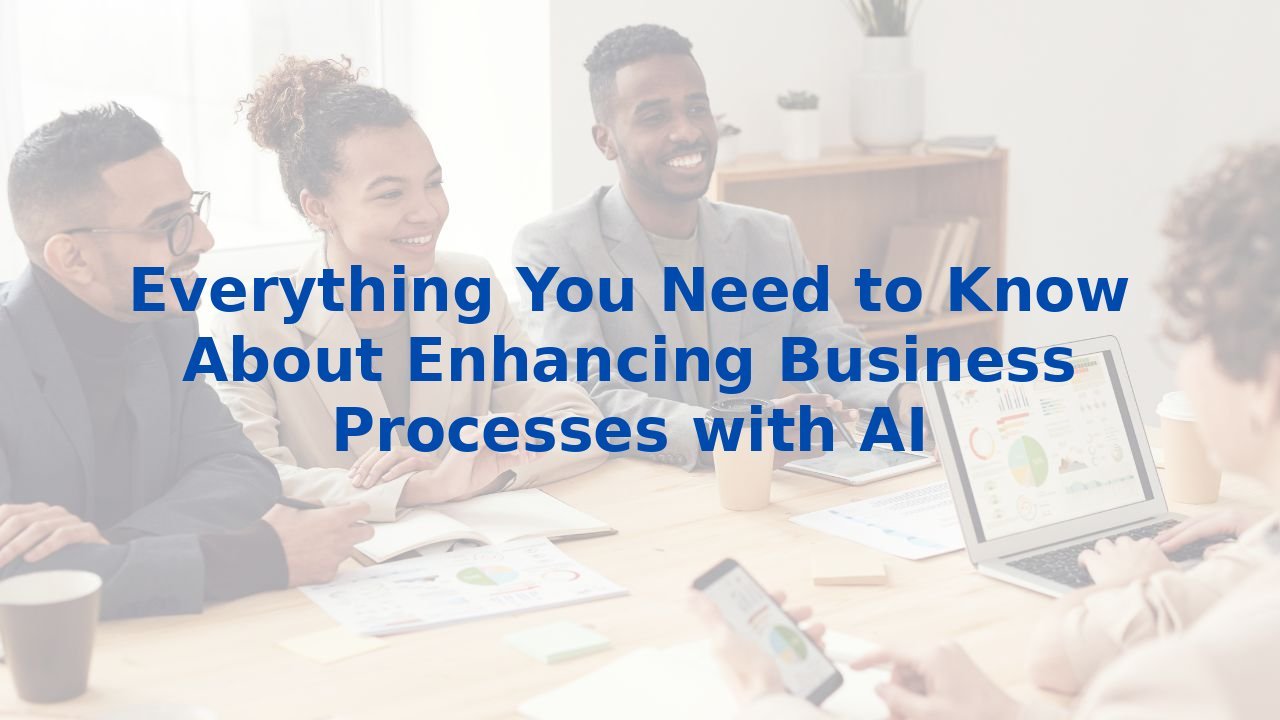Everything You Need to Know About Enhancing Business Processes with AI
Enhancing Business Processes with AI: A Comprehensive Guide
In today's relentless business landscape, the pursuit of efficiency, cost reduction, and informed decision-making has never been more critical. Enter Artificial Intelligence (AI)—a transformative force that reshapes various business processes, unlocking unprecedented opportunities for organizations. This blog explores the myriad ways AI can enhance business processes, focusing on vital areas such as process discovery, automation, management, and continuous improvement.
Process Discovery: Unveiling Hidden Efficiencies
Understanding the intricacies of existing business processes is key to unlocking their potential. Traditional methods, often reliant on employee interviews and manual data assessments, can overlook hidden inefficiencies. Here, AI-driven process discovery comes into play. By rapidly analyzing vast amounts of operational data through techniques like process mining and pattern recognition, AI excels at uncovering bottlenecks and redundancies that might go unnoticed.
Imagine AI meticulously mapping out operational workflows, highlighting essential areas for enhancement. The insights gained through AI empower organizations to identify inefficiencies and streamline operations, ultimately leading to more data-driven decisions. This leads to not just improvement in processes but a holistic alignment within the organization.
Process Automation: Reducing Manual Labor
One of AI's most compelling applications is its ability to automate repetitive tasks. By doing so, organizations can significantly reduce the manual labor required in various operational aspects. Think about mundane tasks—such as data entry, scheduling meetings, or drafting standard email responses—that occupy valuable employee time.
With AI stepping in to handle these repetitive roles, human resources can be diverted towards strategic and creative endeavors that truly add value. The implications? Enhanced productivity, fewer errors, and a reduced operational cost model. By fostering a culture of automation, businesses are well-equipped to navigate the complexities of their respective industries.
Process Management: Continuous Monitoring and Improvement
Implementing AI go beyond automation; it's about embracing a philosophy of continuous improvement. AI excels in continuous monitoring of processes, using historical data to proactively alert management of potential issues. This real-time oversight ensures that deviations from established processes are detected early, promoting timely interventions that either mitigate risks or capitalize on emerging opportunities.
Moreover, AI introduces data-driven insights, predictive modeling, and dynamic adaptability into process management. This enables organizations to drive sustainable improvements while maintaining a competitive edge. Imagine a scenario where processes aren't just followed, but are continuously optimized based on real-time data—the future of efficient business operations.
Benefits of AI in Business Process Management
- Improved Efficiency: Automating manual tasks translates to reduced time spent on repetitive activities, allowing employees to concentrate on strategic initiatives.
- Enhanced Decision-Making: Powered by accurate, timely insights through advanced analytics, AI enhances decision-making capabilities.
- Cost Reduction: By minimizing errors and optimizing resource allocation, AI effectively reduces operational costs.
- Better Compliance: AI ensures consistent execution of processes in accordance with industry standards, reducing fines and penalties.
- Enhanced Customer Satisfaction: Through personalized support and faster response times, AI elevates the customer experience.
Training Employees for AI: The Key to Success
While AI presents an incredible opportunity, its true potential shines when employees are equipped to harness it effectively. Training in AI is not just about technical skills; it is about fostering an organizational culture that appreciates data-driven decision-making. Employees must be trained to interpret AI-driven insights and integrate these into their daily workflows.
This involves covering essential topics such as data analysis, predictive modeling, and process optimization. Organizations that invest in comprehensive AI training will find themselves better positioned to leverage these technologies for continuous improvement and innovation. Empowering staff with these competencies is critical; it ensures that AI is not just a tool, but a cornerstone of successful operations.
Conclusion
As we navigate the complexities of the modern business world, AI stands out as a transformative force redefining how organizations operate. From enhancing process discovery and automation to facilitating proactive management and continuous improvement, the advantages of integrating AI into business processes cannot be overstated. It’s a journey that opens the door to greater efficiency and long-term success. With AI as an ally, organizations are not just poised to survive but to thrive in an ever-evolving landscape.
For companies ready to embrace this change, the future is bright. By integrating AI into your processes and investing in employee training, you are setting the foundation for a resilient, innovative, and efficient enterprise.



